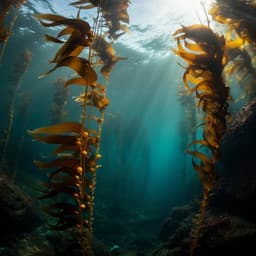
Environmental Studies and Forestry
Marine protected areas do not prevent marine heatwave-induced fish community structure changes in a temperate transition zone
R. M. Freedman, J. A. Brown, et al.
This research by Freedman, Brown, Caldow, and Caselle explores how marine heatwaves are reshaping kelp forest fish communities in Southern California, revealing a startling shift in species abundance and highlighting the need for enhanced management strategies beyond Marine Protected Areas to tackle the challenges of warming seas.
~3 min • Beginner • English
Related Publications
Explore these studies to deepen your understanding of the subject.







